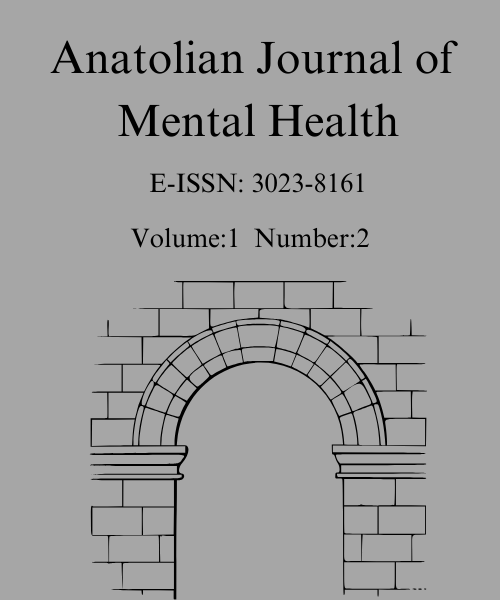English Use of Artificial Intelligence in Psychiatric Nursing and Ethics
DOI:
https://doi.org/10.5281/zenodo.13765900Keywords:
Psychiatric nursing, Artificial intelligence, EthicsAbstract
Artificial intelligence is a technology that can fulfil tasks that require human intelligence, providing significant developments in various fields such as health. While the use of Artificial intelligence in medical applications offers advantages such as early diagnosis and personalized treatment plans, it also brings ethical issues such as data security and privacy violations. The integration of Artificial intelligence in the field of psychiatric nursing improves nurses' therapeutic relationships with patients, while at the same time supporting their clinical decision-making processes. However, for the effective use of Artificial intelligence in this field, nurses should be trained in Artificial intelligence technology and ethical guidelines should be established. Integration of Artificial intelligence into mental health services can improve the healing process of patients by supporting the personal skills of nurses. In conclusion, the use of Artificial intelligence in psychiatric nursing in a broader and ethical framework may improve the quality of mental health services.
References
REFERENCES
• Aslan, F., and Subaşı, A. (2022). Hemşirelik eğitimi ve hemşirelik süreci perspektifinden yapay zekâ teknolojilerine farklı bir bakış. Sağlık Bilimleri Üniversitesi Hemşirelik Dergisi, 4(3), 153-158. https://doi.org/10.48071/sbuhemsirelik.1109187
• Briganti, G. (2023). Artificial Intelligence in Psychiatry. Psychiatria Danubina, 35(Suppl 2), 15-19.
• Castenhammar, M., and Mohammed, H. (2020). Artificial Intelligence in Psychiatric Healthcare Exploration of Opportunities and Challenges
• Fareeq, A., Ahmed, S. K., Hussein, S., and Qurbani, K. (2024). Artificial intelligence-assisted nursing interventions in psychiatry for oral cancer patients: A concise narrative review. Oral Oncology Reports, 100343. https://doi.org/10.1016/j.oor.2024.100343
• Fiske, A., Henningsen, P., and Buyx, A. (2019). Your robot therapist will see you now: ethical implications of embodied artificial intelligence in psychiatry, psychology, and psychotherapy. Journal of medical Internet research, 21(5), e13216 https://doi.org/10.2196/13216
• Kostopoulos, L. (2018). The emerging artificial intelligence wellness landscape: benefits and potential areas of ethical concern. Cal. WL Rev., 55, 235.
• Lee, E. E., Torous, J., De Choudhury, M., Depp, C. A., Graham, S. A., Kim, H. C., ... and Jeste, D. V. (2021). Artificial intelligence for mental health care: clinical applications, barriers, facilitators, and artificial wisdom. Biological Psychiatry: Cognitive Neuroscience and Neuroimaging, 6(9), 856-864. https://doi.org/10.1016/j.bpsc.2021.02.001
• Nashwan, A. J., Gharib, S., Alhadidi, M., El-Ashry, A. M., Alamgir, A., Al-Hassan, M., ... and Abufarsakh, B. (2023). Harnessing artificial intelligence: strategies for mental health nurses in optimizing psychiatric patient care. Issues in Mental Health Nursing, 44(10), 1020-1034. https://doi.org/10.1080/01612840.2023.2263579
• Okcu, C. (2020). Benlik saygısı ve iyi olma halleri arasındaki ilişkilerin yapısal eşitlik modellemesiyle incelenmesi. İstanbul Kent Üniversitesi İnsan ve Toplum Bilimleri Dergisi, 1(1), 52-69.
• Özel, G., and Aba, Y. A. (2023). Teknolojinin Görünmeyen Yüzü: Hemşirelik Mesleğinde Teknostres. Genel Sağlık Bilimleri Dergisi, 5(2), 258-274.
• Ray, A., Bhardwaj, A., Malik, Y. K., Singh, S., and Gupta, R. (2022). Artificial intelligence and Psychiatry: An overview. Asian Journal of Psychiatry, 70, 103021. https://doi.org/10.1016/j.ajp.2022.103021
• Rizzo, A., Lange, B., Buckwalter, JG, Forbell, E., Kim, J., Sagae, K., ... and Kenny, P. (2011). SimCoach: An intelligent virtual human system for providing healthcare information and support. https://doi.org/10.1515/IJDHD.2011.046
• Sadeh-Sharvit, S. and Hollon, SD (2020). Harnessing the power of non-disruptive technologies to optimize mental health treatment: case study. JMIR Mental Health, 7 (11), e20646. https://doi.org/10.2196/20646
• Sayar, B. (2023). 5. Tıp Alanında Yapay Zekânın Kullanımı: Araştırma Makalesi. Acta Medica Ruha, 1(1). https://doi.org/10.5281/zenodo.7749209
• Solaiman, B., Malik, A., and Ghuloum, S. (2023). Monitoring Mental Health: Legal and Ethical Considerations of Using Artificial Intelligence in Psychiatric Wards. American Journal of Law and Medicine, 49(2-3), 250-266.
• Strickland, E. (2019). IBM Watson, heal thyself: How IBM overpromised and underdelivered on AI health care. IEEE Spectrum, 56(4), 24-31). https://doi.org/10.1109/MSPEC.2019.8678513
• Sudha, R. (2024). Effectiveness of Virtual Positive Psychology Based Intervention with Artificial Intelligence Based Application against Loneliness and Depression: A Randomised Control Trial. Journal of The Indıan Academy of Applıed Psychology, 19.
• Ülker, S. V., and Akkan, G. (2023). Ruh sağlığı hizmetlerinde yapay zeka uygulamaları ve ilişkili teknolojiler. Fenerbahçe üniversitesi sosyal bilimler dergisi, 3(2), 242-263. https://doi.org/10.58620/fbujoss.1368922
• Waheed, H., Akram, W., Islam, S. U., Hadi, A., Boudjadar, J., and Zafar, N. (2023). A mobile-based system for detecting ginger leaf disorders using deep learning. Future Internet, 15(3), 86. https://doi.org/10.3390/fi15030086
• Woodnutt, S., Allen, C., Snowden, J., Flynn, M., Hall, S., Libberton, P., and Purvis, F. (2024). Could artificial intelligence write mental health nursing care plans?. Journal of Psychiatric and Mental Health Nursing, 31(1), 79-86.
• Yılmaz, M., and Özcan, A. (2016). Psikiyatri hemşireliğinin geleceği. Mersin Üniversitesi Sağlık Bilimleri Dergisi, 9(1), 53-59.
Downloads
Published
How to Cite
Issue
Section
License
Copyright (c) 2024 Musa Paça

This work is licensed under a Creative Commons Attribution 4.0 International License.





